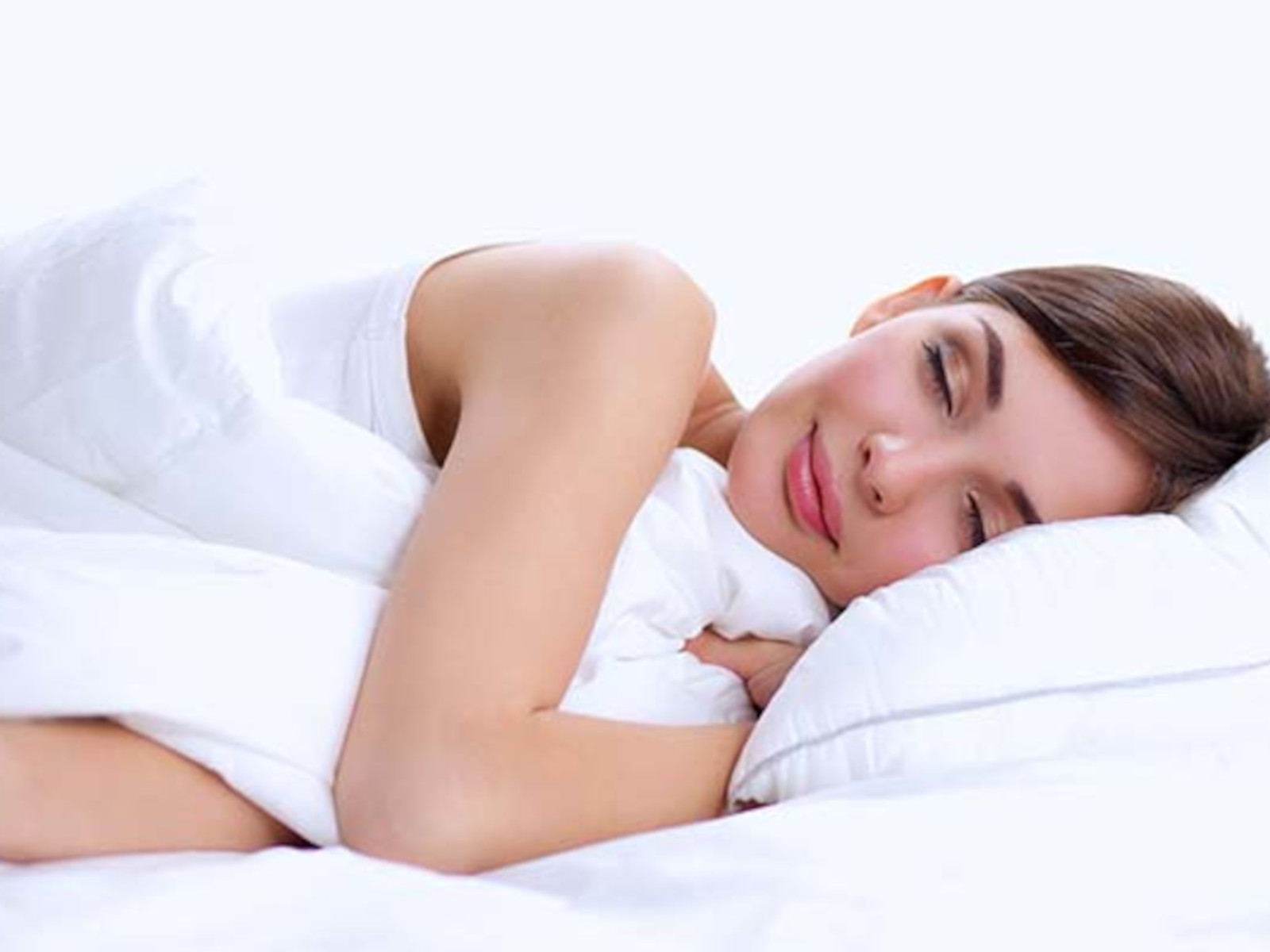All about sleep

Are you one of the many people who have trouble falling asleep? Maybe you toss and turn during the night, wake too early or wake not feeling refreshed. You’re not alone! In Australia hundreds of thousands of people struggle with falling asleep and staying asleep every night.
Simply developing a good bedtime routine and creating a plan that works well for you will help you to avoid common pitfalls.
What is Insomnia?
Insomnia is the most common sleep disorder and typically involves:
- difficulty falling asleep
- difficulty remaining asleep
- early morning awakenings
- non-restorative sleep (waking tired)
Chronic insomnia is defined as difficulty initiating or maintaining sleep, or waking tired for three or more nights a week for a month or more.
Certain people are at higher risk for insomnia than others, including:
- more than 45 years old
- chronic health conditions such as: chronic pain, respiratory dysfunction, asthma, diabetes, movement disorders, rheumatoid arthritis, sleep apnoea
- anxiety and depression
- stress from life and work
- obesity
- alcohol and drug use
Sleep phases
There are two main phases of sleep.
REM (rapid eye movement) sleep is associated with vivid and intense dreaming and a high level of brain activity; this is the least restful sleep. REM mostly occurs in the second half of the night.
NREM, or non-rem sleep is slow wave sleep with non-visual content. This is often the highest quality sleep. During the NREM stage the body repairs and re-grows tissue, builds bone and muscle and strengthens the immune system. NREM sleep mostly occurs in the first part of the night.
The effects of insomnia
Chronic sleep deprivation or insomnia can lead to, or create further impact on, a number of health issues. There are links between insomnia and …
- insulin resistance and heart disease e.g. elevated heart rate, heart failure, irregular heart beat, high blood pressure
- hardening of the arteries
- increased ageing of your skin
- reduced levels of the hormone melatonin which leads to a depression of the immune system
- increased risk of developing breast cancer
- increased stress on nerve pathways
- increased risk of irritability, depression and mood disorders
- increased risk of stress related disorders such as stomach ulcers and constipation
- increased inflammatory processes
- increased risk of diabetes and obesity
- poor appetite control
- slower reaction times because your ability to think clearly dampens
- heightened emotions and forgetfulness
- substance abuse
Improving your daytime habits will improve your sleep
Sounds strange but what you do during the day (and how often you do it) can effect your sleep at night.
i. Regular exercise helps
Regular exercise is a healthy, safe, inexpensive and simple means to improve your sleep. It promotes relaxation, which helps to initiate and maintain sleep, increasing the non-rem sleep phase and stimulating the regenerating characteristics of sleep.
Plan your exercise for morning or afternoon as exercising in the evening raises the body temperature. The body actually requires a cooler body temperature to produce a good night’s sleep. If you haven’t had a chance to exercise during the day, try some simple stretching or relaxation yoga in the evening.
ii. Get some natural light during the daytime
The body is designed to know night is for sleeping and daytime is for activity and our internal body clock helps to regulate sleep. Light tells our body to wake up and be active. If you work indoors try to open blinds to get as much daylight as possible, or turn on more lights to make your workspace bright.
iii. Avoid napping during the day
If you are someone who naps during the day and then has trouble sleeping at night, try eliminating the afternoon nap. If you are too tired to get through the afternoon, consider what you are eating for lunch, or seek expert advice from a health care professional.
Avoid stimulants
i. Avoid caffeine for at least four hours before bedtime
Caffeine found in coffee, energy drinks, chocolate and tea is a stimulant which can stop your body from getting to sleep and can also impact the quality of your sleep. Caffeine builds up over the day and can stay in the system for up to 12 hours.
ii. Avoid alcohol for at least four hours before bedtime
Alcohol is a depressant and while it can make it easier for you to fall asleep, it can cause you to wake during the night and it can also cause nightmares. Like caffeine, alcohol can stay in your system many hours so avoiding it for several hours before bedtime will help the quality of your sleep.
iii. Avoid smoking before bedtime
Nicotine is a stimulant, which disrupts sleep. Smokers can also experience nicotine withdrawals as the night progresses which also makes it harder to sleep; if you do smoke try and cut back on cigarettes four hours before bed, and don’t smoke at all 30-45 minutes before trying to sleep.
Improve your sleep environment
i. Mattress, pillows, bedding
The wrong bedding can cause you to wake during the night with back or neck pain. Experiment with different mattress firmness and pillows to provide support. Pillows now come in all shapes and sizes and can suit side, back or stomach sleepers. Consult a bedding specialist for more professional advice.
ii. Bedroom lighting
It’s important to keep your room completely dark during sleep hours. Light can send the wrong signals to your body clock; disrupt the circadian rhythm and the production of hormones necessary for sleep. If your room isn’t dark enough, try an eye mask to cover your eyes. If you must use a smart phone or ‘tablet’ late at night try turning down the brightness. Blue Light from technology screens is especially effective at keeping you awake.
iii. Keep noise levels to a minimum
Loud noises and conversation can stimulate the brain. If you can’t eliminate the noise (e.g. outside traffic) try a counteracting technique such as running a fan, or playing soft soothing music. Relaxing, calming music has been proven to improve sleep quality in adults. Playing the sounds of waves crashing on a beach may also prove effective to help you to ‘nod off’. Earplugs to block background noise can also be used.
iv. Find a comfortable temperature setting
Having your bedroom too hot or two cold can keep you awake. Most people sleep better in a slightly cool (not cold), well-ventilated room. Many sleep scientists recommend your bedroom temperature be just over 18°C.
v. Reserve your bedroom for sleeping
Keep the office work in another area of the house. Let your body know that the bedroom is associated with sleep.
Preparing for sleep
i. Get to bed as early as possible
The very best time for your body to be asleep is between the hours of 11pm and 1am because that’s when the body is healing and removing toxins.
ii. Develop a routine
Fix a bedtime and a waking time. The body gets used to falling asleep at a certain time but only if this is a relatively fixed pattern. Try going to bed and waking at the same time every day. This gets the body into a good routine and it will become easier and easier to fall asleep. Follow this pattern on weekends even if it’s tempting to break it – your overall sleep will be better. You can always record that footy game or movie to watch at a more convenient time!
Adjust your bedtime in small amounts initially, perhaps 15 minutes earlier each day. Start listening to your body and the clues it is giving you about being tired. If you go to bed before you are tired you may lie awake worrying about not sleeping; and end up staying awake longer. Many people fail to get to sleep because they aren’t tired. One of the quickest ways to overcome a sleep problem is to get up in the morning 15 minutes earlier than you normally would.
iii. Watch what you eat before you sleep
Avoid heavy, spicy, fatty, sugary foods for a couple of hours before bedtime. These can take a while to digest which can inhibit sleep. If you snack before bed, particularly grains and sugary foods, it can raise your blood sugar levels. Later when blood sugar levels drop too low (hypoglycaemia) you may wake up and have trouble falling back to sleep. Eating a small handful of tryptophan rich foods (a sleep enhancing amino acid) may help with sleep. The highest sources of tryptophan are in pumpkin seeds, roasted soy beans, sesame seeds, sunflower seeds, pistachio, cashew and almond nuts.
iv. Make the body aware that sleep is close by.
Think about what relaxes you, turn down all bright lights, turn the television off and other forms of stimulation e.g. radio, loud music, computer or iPad.
v. Have a relaxing bath, listen to soft soothing music or read a book.
Taking a bath directly before bedtime can significantly improve the quality of sleep. Lying in a warm bath artificially raises your body temperature, when you climb out of a bath this abruptly drops and sends a signal to your body that you are ready for sleep.
vi. Try some relaxation techniques
Yoga, visualisation or muscle relaxation tells our body it’s time to sleep and helps to relieve anxiety.
vii. Keep a note pad near the bed
If you have things playing on your mind about the day or week ahead, jot them all down. Recent studies have shown that people who also wrote down something they could do to help solve the problem/s they were busy thinking about were more relaxed at bedtime.
viii. Avoid things that will cause worry or anxiety
Violent television shows, upsetting news, work emails, electronic games and other things that stimulate the mind directly oppose what you are trying to achieve so put them all aside at least an hour before bedtime.
xi. Herbs can help
Specific herbs such as Zizyphus, Kava, Hops, Hypericum, Skullcap, Lavender, Chamomile, Valerian and Passionflower can help settle the body to sleep. Try an herbal tea sleep blend – there are many good preparations available. Essential oils such as Chamomile or Lavender in moisturiser creams or in the bath are another option; or you can take flower essences such as Rescue Remedy, Chestnut Bud (to break patterns) and White Chestnut (to turn off a busy head). Consult a complimentary health care professional for advice.
x. Don’t try too hard!
If you’ve been lying awake for more than 30 minutes don’t stay in bed, it will just make you more anxious about not sleeping. Try getting up and doing a quiet relaxing activity – have a cup of herb tea, listen to some music, do a meditation, read something soothing. Keep the lights dim so your body clock knows it’s not daytime, but time to sleep. Return to bed after 20 minutes or so and try again.
Additional Tips
- Don’t be a clock watcher, it just causes anxiety. Get rid of your current “bright” clock, make the light dimmer, or turn it around so you can’t see the time.
- Avoid using a loud alarm clock as it can stress the body to be woken suddenly.
- Pharmaceutical preparations may adversely affect sleep; check this with your doctor.
- Sounds silly but try wearing socks to bed. Your feet feel cold before the rest of the body because they have the poorest circulation. According to a recent study wearing socks to bed could reduce night waking.
- If you normally wake up frequently to go to the bathroom then don’t drink any fluids within two hours of going to bed.
- It takes six weeks to crate a bad habit and six months to remove it, so be patient!



